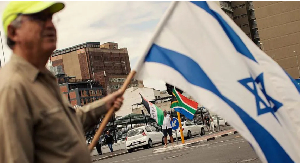We, the activists of the Movement for Economic and Social Justice (MESJ) met (end of year meeting) in Accra on Sunday, December 21st, 2014 to review the national situation as the year, 2014 draws to a close and to renew our determination to the struggle against economic and social injustices in Ghana.
At the meeting we were minded by the fact that many experts and institutions in and out of this country have expressed various views about the state of Ghana’s economy.Others have talked about an economy that is facing challenges. Whatever description one may give, we in the Movement for Economic and Social Justice (MESJ) believe that Ghana’s economy is not working for the majority of Ghanaians.
Times are hard and appear to be getting harder for citizens in the country. The very harsh measures that have recently been implemented including increase in taxes, increase in fuel prices and utility tariffs are themselves sufficient indicators to the harsh realities that the people of Ghana are facing.
Many citizens including graduates, traders, workers and farmers are increasingly finding it very difficult to cope with the economic hardships. Access to employment,housing and health is still poor for a large number of people in this country. Data available indicates that numerous businesses have collapsed during the last 12months resulting in many Ghanaians losing their sources of livelihood and have to live in a state of despair.
In our discussions we paid special attention to the unreliable supply of electricity inGhana today. In 2013, President John Dramani Mahama stated that Ghanaians should be prepared to pay higher utility bills if we want a stable electricity supply. After imposing a more than 70% rise in electricity tariffs.
The government must deliver on its promise to provide reliable and stable power to consumers in this country. We note that such sloppy performances in the power sector are effectively denying or have the potential to deny citizens of Ghana a good life. Cold stores, hairs dressing saloons,artisans and many small scale business ventures have folded up because of the abysmal supply of electricity. We call on the Government as a matter of urgency to make appropriate arrangements to fix the problem.
The attention of the meeting was also drawn to recent security issues at the KotokaInternational Airport (KIA) alongside reported cases of murders and armed robbery in some parts of the country. We in the Movement for Economic and Social Justice(MESJ) support the security agencies in their handling of general security issues.
However, information available to us indicates that, only the Civil Aviation Security operatives at the Kotoka International Airport have access to the Close CircuitTelevision Cameras (CCTV) room and therefore control its operations. We strongly suggest, as best practices demand, that all the various security agencies includingNarcotics Control Board (NACOB), Ghana Immigration Service (GIS) CustomsDivisions of the Ghana Revenue Authority (CEPS), Bureau of National Investigations(BNI), the National Security outfit and etc present at the airport should have representatives in the control room of the CCTV.
It is a matter of grave concern that all governments since the return to the constitutional rule in 1992 have reneged on their campaign promises to allow the decentralization structures to work.
They look the other way in the full glare of very high levels of corruption and corrupt practices which take vital resources out of the development process. Today in Ghana, virtually every amount of cedi that is stolen from the national purse has a powerful person or an influential person behind it.Official corruption, maladministration and bad leadership appear to be the order of the day.
We the activists of the Movement for Economic and Social Justice (MESJ) note that whether under a government of the National Democratic Congress (NDC) or under the government of the New Patriotic Party (NPP), the campaign promises to reduce prices of petroleum products and utility tariffs are not usually fulfilled. That is why we find as despicable that a political party in opposition is taking advantage of our plight top resent itself as if they care more for us.
For example, we note the current campaign by the New Patriotic Party (NPP) asking the government to reduce the prices of petroleum products. However, we think their campaign is disingenuous. We recalled that in the year 2001, the NPP government increased the price of fuel by about 64%. Around the same time period the world prices of crude oil decreased from $30 to $23 per barrel. They refused to reduce the prices for the consumer. Our politicians should stop being hypocritical.Today as we speak, the prices of petroleum products continue to be unacceptably high and the situation leads to increases in cost of food, health, lorry fares, rent and education.
The Movement for Economic and Social Justice (MESJ) will intensify our campaign against economic and social injustices in this country. We similarly call on the rest of the population to speak out in the public against all forms of injustices, hardships and corruption.
The government should be listening to the people rather than talking down to us by denying that we are suffering.
Adopted on Wednesday December, 24th 2014.
Lawrence Lamptey (Publicity – Member)
Dated, Wednesday December 24th 2014.
For Further Details Please Contact:
Khuzaima M. Osman – 0249 826 093
Lawrence Lamptey – 024 725 1024
Dauda Mohammed Suru – 0244 126 292
Sedem Sylvester Ofori – 0244 549 493
Business News of Friday, 26 December 2014
Source: Movement for Economic and Social Justice












